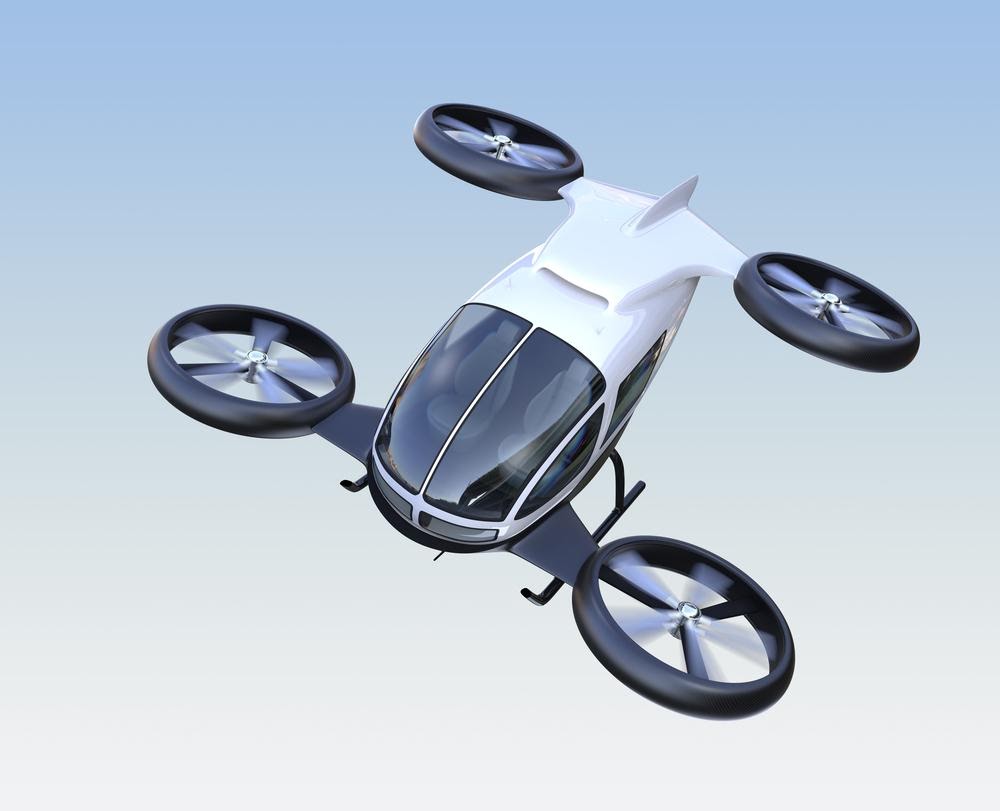Today I’d like to discuss a hot new sector that so far is staying under the radar. That sector is the new industry known as EvTol. EvTol stands for Electric Vertical Take-Off and landing. Basically, they are electric helicopters with multiple propellers.
What makes this new form of transport so intriguing is how quiet these vehicles are, which could open up an exponential growth opportunity as metropolitan travel moves into 3D on a large scale.
Last week we saw 2 SPACs in this sector receive merger approval, paving the way for a possible run as we’ve seen in other hot sectors such as marijuana in the past.
Electrified Air Mobility
With ever-increasing battery technology capability, electric flying vehicles are now a reality. Numerous flight tests have already been performed by the industry leader in the U.S Joby Aviation (JOBY). What makes this sector so exciting is that it is potentially an entirely new form of transport. You see, traditional helicopters are limited by a number of factors. First of all, they are very loud, which limits their viability in many urban locations due to noise complaints. Thus they are limited in the locations where they can take-off and land.
Furthermore helicopters have hundreds of moving parts, where if one of them fails, the flight can be a disaster making them riskier than other forms of transport. Due to the complexity of build helicopters are also very expensive to manufacture. Thus they are costly to buy and for travel use. Evtol vehicles aim to solve the above problems and move metropolitan travel into the 3rd dimension, the sky, on a large scale.
Let’s take a look at some of the companies racing to become leaders in the space.
Joby Aviation (JOBY), based out of Santa Cruz, California, is the clear leader in the space, having completed over 1000 test flights over the last 10 years. They also have the richest valuation having a market capitalization of approximately $5.2 billion.
The JOBY aircraft is intended to be a four-passenger commercial aircraft with a pilot, capable of traveling up to 150 mi (240 km) on a single charge at a top speed of 200 mph (320 km/h). Near silent in flight, the aircraft is designed to be 100 times quieter during take-off and landing than a helicopter. Joby plans to mass-produce its aircraft, with a plan to operate a piloted on-demand air-taxi service. The aircraft will be electrically powered and operate with zero emissions. The aircraft will be operated as a service with per-trip passenger pricing.
JOBY has also purchased Uber Elevate. Joby described the Uber Elevate acquisition as a way to accelerate its commercial launch through Elevate’s tools and personnel. Elevate had previously operated a service called Uber Copter, which allowed all Uber users in the New York area to book a trip to John F. Kennedy International Airport, with a car taking riders to a heliport and a helicopter then taking riders to the airport. In addition last week JOBY completed flight testing with NASA. NASA’s goal is to collect vehicle performance and acoustic data for use in modeling and simulation of future airspace concepts.
Archer Aviation (ACHR) is an EvTOL company out of Palo Alto, California. At this point in time, Archer only has a prototype called the Maker. The Maker is Archer’s full-scale electric vertical take-off and landing aircraft that will be capable of traveling 60 miles at 150 mph. Having been founded only in 2020, ACHR is a fairly new company. However, they have poached some of the very best engineers from Wisk and Airbus who have years of EvTOL experience. Geoff Bower, the chief engineer for Airbus’ Vahana program, holds the same title at Archer. Tom Muniz, previously VP of engineering at Wisk, also joined the company in the same position.
However, having poached some of Wisks’s best talent who have been working on Evtol for over 10 years, ACHR has had a lawsuit brought against them by Wisk, accusing them of stealing trade secrets. This legal overhang led to a halving of their valuation pre merger to a valuation of $1.7billion and has attracted short interest due to potential liability. We have seen such lawsuits in the past between Facebook and the Winklevoss twins, as well as between Uber and Waymo. This legal uncertainty makes ACHR an even riskier investment.
In January 2021, Archer announced it had entered into a strategic collaboration agreement with Stellantis, the parent company of Fiat Chrysler, with a focus on accessing its low-cost supply chain, advanced composite material capabilities, and engineering and design experience. They are working with Stellantis on mass vehicle production capabilities.
Archer is also partnered with United Airlines, which has an equity stake in the company. Under the terms of its agreement, United has placed an order for $1 billion of Archer’s aircraft. United has the option to buy an additional $500 million of aircraft. Given that they have a pre-order for $1billion and their market cap stands at $1.7 billion, ACHR could be trading at a very cheap valuation if their legal troubles prove to come to nothing.
Lilium (LILM) is a German aerospace company working on the Lilium Jet.
Since 2015, LILM has been developing vertical take-off and landing jet technology. They have tested 4 generations of prototypes including the current 5-seat technology demonstrator. In 2018, they applied for concurrent type certification with EASA and FAA for a larger Lilium Jet and subsequently began working on a 7-seater.
LILM has a partnership with Lufthansa Aviation Training (LAT, member of the Lufthansa Group). Together, Lilium and Lufthansa Aviation Training will develop a tailor-made Pilot Sourcing and Training program to qualify pilots to fly the Lilium Jet. Lilium and Lufthansa Aviation Training will also jointly work together with EASA (EU) and FAA (USA) regulatory authorities on certification.
Last week Piper Sandler initiated cover on LILM and gave it a price target of $17. It is now trading close to its Merger Pricing of $10 as are ACHR and LILM.
Industry Opportunity
Morgan Stanley predicts urban air mobility to be a $1+ trillion market by 2040. Given that the 3 current leaders in this new industry have market caps less than $10billion combined, the growth prospects are outstanding. What has held back helicopters is their noise and cost. Given how quiet EvTOLS are, almost every parking space or skyscraper now becomes a potential helipad. For example, prior to 2014 every skyscraper in California was required by law to be built with a helipad in case of fire or emergency. However, day to day, most of them were actually inaccessible by helicopters due to noise regulations.
However, these companies are not expected to begin operations or have any significant revenue until 2024 when these aircraft are due to be produced on a large scale and FAA certification is expected. This is a situation somewhat similar to the .com boom, where pre-revenue internet companies were being listed. Thus the opportunity is immense, but being mostly startups, the risk is also there. However, there is no doubt that these stocks are possible multi-bagger opportunities.
All these companies are planning to have an UBER-like air taxi service up and running by 2024. UBER and LYFT have combined market caps of just under $100 billion. In addition, when compared to electric vehicle counterparts such as Lucid Group (LCID) and Fisker (FSR) both of which have yet to have delivered products to consumers, JOBY, ACHR and LILM appear to be relatively cheap. LCID has a market cap of $34billion and FSR one of $3.4billion.
Bottom Line
EvTOL vehicles will soon become a reality, as the incumbent players aim to have an UBER like air taxi service up and running by 2024. Given that Morgan Stanley estimates a $1trillion market by 2040 and the 3 market leaders have a market cap of less than $10billion combined, this could be an immense investment opportunity in a completely new sector. However, the fact that these companies are all mostly pre-revenue startups means the risk here is immense. It appears that this is an industry that people and the world need and work with NASA and the FAA is already underway to make this new sector and form of transport a reality. These startups have already partnered with the world’s leading airlines such as Lufthansa and United Airlines giving even more credibility to these companies. Given high short interest in some of these names, due to lack of revenue and legal issues, there is potential of a gamma squeeze in the short term if hype around the sector builds, as was the case with marijuana and the .com bubble. Over the long-term, it would seem that this new industry is extremely undervalued due to the market potential. It could be just a matter of time before the market will re-rate the value of some of these companies.
Comments are closed.






3 Comments
Love the info Jeff, been waiting like you since “popular mechanics” in the 60’s to finally fly to my boat or the bar “AS PROMISED LONG AGO”. 🙂
I read about the hologram phones, too!
Awesome analysis! Thank you and noted.